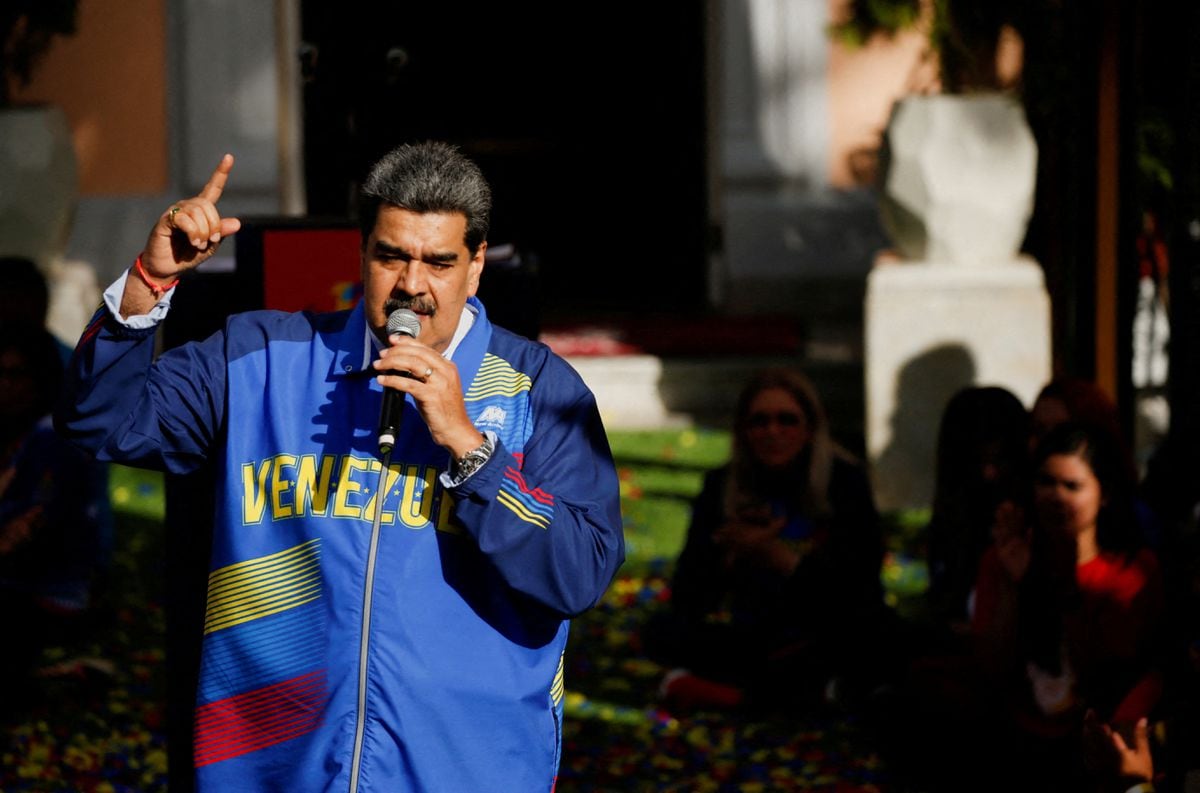Nicolás Maduro, President of Venezuela, during a rally on February 12, 2023 in Caracas.LEONARDO FERNANDEZ VILORIA (REUTERS)
The negotiating table in Mexico remains at a standstill and in view of the demands of the parties it does not seem easy for it to be reactivated in the short term.
According to sources familiar with the situation, Nicolás Maduro conditions the return to dialogue with the opposition to the release of the Venezuelan funds frozen abroad and the granting of licenses to the state oil company PDVSA so that it can sell the amount of crude produced that right now has no way out
Washington has received the message through Juan González, Joe Biden's advisor for Latin America, and Colombian diplomacy, increasingly involved in the matter.
The United States, in turn, insists that it needs gestures from the Chavista government, such as the release of prisoners and the lifting of disqualifications for opposition politicians.
Only in this way could he agree to release money with which a fund would be created, supervised by the UN, destined to combat the social and economic crisis that Venezuela is experiencing.
The last time the government and the opposition met in Mexico, in November, they agreed to unfreeze these state funds abroad, which total several billion dollars.
It has not come to pass.
OFAC, the US foreign asset control office, warned that these assets could be claimed by creditors to whom the Venezuelan government owes money.
Maduro believes that Biden has no real will to release these funds and the situation has become entrenched.
Since then there has been no movement that could unlock the situation.
In Mexico, an exact date must be specified for the 2024 presidential elections and the promise that the opposition will be able to challenge Maduro for power with a minimum of guarantees.
The opponents are going to hold a referendum from which a single candidate will emerge who will receive, in principle, the support of the rest.
The anti-Chavistas have not managed to unite in these years and have lurched which have facilitated the task of the Government.
At the beginning of the year, they eliminated the interim presidency of Juan Guaidó, who for a time was used by the United States as an alternative president to isolate Maduro.
It didn't work.
Guaidó lost all support and, in parallel, the international situation favored Maduro, more established in power than ever.
Countries until recently at odds with Chavismo, such as Spain and Colombia,
President Joe Biden, this Monday at a press conference at the White House. Associated Press / LaPresse (AP)
Precisely the president of Colombia, Gustavo Petro, has taken the initiative to lead Venezuela to what he calls a liberal democracy.
In his first meeting with Maduro, he used this term in a joint press conference before the stony face of the Venezuelan president.
They have seen each other four more times and this issue has always been on the table.
Petro, in turn, is going to organize a forum with the opposition, as announced by EL PAÍS, and is planning other more ambitious meetings than this one.
Maduro asked him to include in that space parties that he considers moderate opposition, but that anti-Chavismo call scorpions with contempt.
They consider that these formations play the game of Chavismo and survive under its shadow.
Petro didn't think it was a good idea.
Jorge Rodríguez, Maduro's right-hand man, is known for being a skillful negotiator.
He wants to put the granting of licenses to sell Venezuelan oil on the table.
The United States forbids it with sanctions, although late last year he made some concessions by allowing Chevron to operate.
It was a gesture of approaching Chavismo, which he began to consider a valid interlocutor as a result of the Russian invasion of Ukraine.
The US needed to look for alternative energy providers.
Internally, those licenses that Rodríguez demands would be a breath of fresh air for the battered Venezuelan coffers and even more so after he has to rearrange his oil businesses after the ousting of the minister of that branch, Tareck El Aissami.
The Government has found a hole of 3 in PDVSA.
For its part, Colombia has deployed its entire diplomatic arsenal to resolve the Venezuelan crisis.
Armando Benedetti, the ambassador, has established strong relations with Chavismo and has visited Washington to carry confidential messages back and forth.
Petro has also entrusted this task to Luis Gilberto Murillo, the ambassador to the United States, who has acted with great secrecy and caution.
Foreign Minister Leyva plays a relevant role, but above all he has focused on Caracas helping Colombia in the peace processes and resolving some thorny issues such as the extradition of Aida Merlano, a former senator who took refuge in Venezuela when she was wanted by the authorities for massive purchase of votes.
In other words, the normalization of Venezuelan political life is on the president's agenda,
who seems capable of solving problems.
However, Venezuela and the United States have their demands, and he never seems willing to give in, for now.
Follow all the international information on
and
, or in
our weekly newsletter
.

